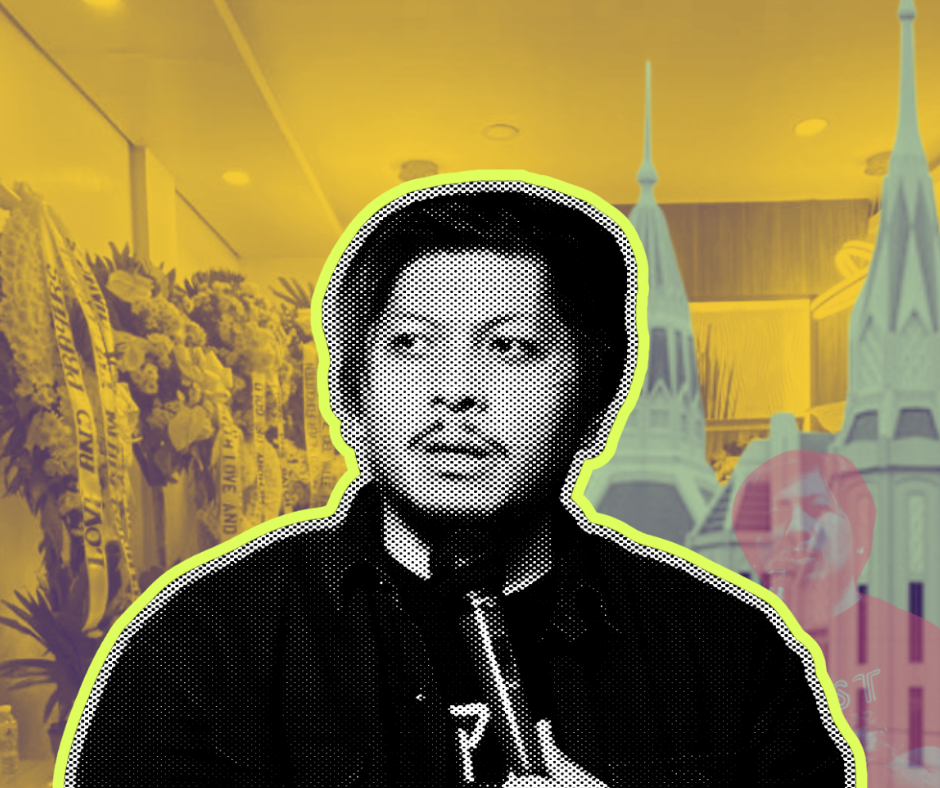Where Undocumented Filipinos Can Find Help| A Friendly, No Judgement, Non-Partisan Guide
Hearing about the recent deportation of 24 Filipinos from the U.S., with 80 more reportedly at risk, might feel scary and overwhelming. If you or someone you know is undocumented, it’s okay to feel worried, but you don’t have to face this alone. There are places to turn for help and support, whether it’s your local Philippine Embassy or trusted organizations that are ready to assist you. Here’s what you can do.
1. Start with the Philippine Embassy or Consulate.
The Philippine Embassy and its consulates in the U.S. are a great first step if you’re looking for help. They’re here for you, and while they may not handle every detail, they can offer guidance and connect you with the right resources. Here’s how they can help:
They can advocate for you and inform you of your rights. The embassy’s job is to look out for Filipinos abroad- documented or undocumented. They might not handle your immigration case directly, but they can point you toward reliable people and resources who can.
They can help you with legal referrals. They can connect you with trustworthy lawyers and non-profits who specialize in immigration cases. It’s always better to have professionals by your side, especially ones that are vetted by the Embassy.
They can help you with official documents. Need to update your passport or get a copy of your birth certificate? The embassy can help fast-track these items, which might be vital for certain legal proceedings that you may have to go through.
They can help you find you the right support programs. Some consulates even offer emergency assistance or help with repatriation if that becomes necessary. It’s worth asking about what programs they have available for your needs.
2. Get in touch with organizations that could help you with your specific situation.
Beyond the embassy, there are amazing organizations dedicated to supporting undocumented Filipinos and other immigrants. These groups have built trust in the community and can offer everything from legal aid to emotional support. Encouraging Filipinos to also connect with these trusted non-profits and advocacy groups ensures they are getting specialized, on-the-ground support that can provide
Free or low-cost legal consultations.
Step-by-step guidance through the immigration process.
Community and emotional support from people with shared experiences.
Here are a few:
Coalition for Humane Immigrant Rights (CHIRLA)
Based in Los Angeles, CHIRLA fights for immigrant rights and offers legal services, community education, and advocacy. They’re a trusted name in helping immigrants navigate tough times. CHIRLA’s Immigrant Assistance Line, available at 888-624-4752 (888-6-CHIRLA), is a toll-free resource designed to connect community members with vital services provided by CHIRLA and its partner organizations. The line operates Monday through Friday, from 9 a.m. to 5 p.m., with live operators ready to assist during these hours. If you call after hours, you can leave a message, and a representative will return your call as soon as possible.
This resource is a reliable starting point for addressing a variety of needs and concerns, including know-your-rights issues, health care for all, DACA (Deferred Action for Childhood Arrivals), AB60 drivers’ licenses, the citizenship process, financial literacy, rent relief, Prop 47 (reduced penalties for certain crimes), immigration fraud, and disaster relief assistance for immigrants. Whether you’re navigating complex immigration issues or simply seeking guidance on available resources, CHIRLA’s Immigrant Assistance Line is here to help.
Filipino Migrant Center
This Southern California-based group is focused on helping low-income and working-class Filipino families. The Filipino Migrant Center (FMC) provides a wide range of free services to support the Filipino community, addressing critical needs in labor, immigration, and beyond. Through legal assistance, health clinics, Know Your Rights trainings, and other programs, FMC empowers fellow kababayan while fostering a deeper understanding of the immediate challenges they face.
FMC also specializes in casework for pressing matters such as labor and employment disputes, immigration concerns, human trafficking, domestic violence, VAWA (Violence Against Women Act) cases, and housing challenges. The FMC would be particularly helpful for any family members who would feel more comfortable speaking with someone directly who speaks Tagalog.
Legal Aid Foundation of Los Angeles (LAFLA)
The Legal Aid Foundation of Los Angeles (LAFLA) is a leading non-profit organization dedicated to providing free legal services to low-income individuals, including immigrants facing critical legal challenges. LAFLA’s expert team offers support in areas such as immigration, housing, employment, and domestic violence, ensuring that vulnerable communities have access to justice and representation. For immigrants, LAFLA provides assistance with matters like adjusting immigration status, applying for citizenship, and helping survivors of crime through specialized legal services.
Catholic Charities of Los Angeles
They’ve been a go-to resource for immigration counseling, helping people with citizenship applications, visa issues, and other immigration-related needs. The organization also offers bi-weekly workshops to assist individuals in navigating the complex U.S. immigration system. You can contact Catholic Charities of Los Angeles, Inc. at their main office located at 1531 James M. Wood Blvd., Los Angeles, CA 90015. For inquiries, you can call them at (213) 251-3400. Additionally, you can reach out via email at info@CatholicCharitiesLA.org for more information or assistance.
Informed Immigrant
This national network connects undocumented individuals with over 1,000 organizations that offer everything from legal aid to healthcare and community resources. What sets Informed Immigrant apart from other organizations is its national reach and ability to connect individuals with a vast network of resources across multiple states. Unlike localized organizations that primarily serve specific regions, Informed Immigrant offers access to over 1,000 trusted organizations nationwide, ensuring that undocumented individuals and their families can find the help they need no matter where they are in the U.S. By acting as a centralized hub of information and services, Informed Immigrant bridges gaps in access and ensures that support is just a click or call away, making it an invaluable resource for those seeking assistance but live beyond large Filipino city hubs.
Here are some additional resource links that can help:
Embassy of the Republic of the Philippines Consulate Finder-Click here to find the nearest Consulate near you.
National Immigration Law Center, Know Your Rights- If you find you have to deal with Immigration and Customs Enforcement (ICE) or other law enforcement officers at home, on the street, or anywhere else, remember that you have the rights described in this factsheet. The factsheet also provides suggestions for what you should do to assert your rights.
ACLU Website- The American Civil Liberties Union (ACLU) provides essential resources to help immigrants understand and assert their rights. Their Know Your Rights guide explains how to handle encounters with immigration or law enforcement officials, including ICE visits at home, work, or in public.
Why Its Important to Act Now: Safe Spaces Are No Longer Off-Limits as They Have Been in the Past
One recent and concerning development is the end of a long-standing Department of Homeland Security policy that protected sensitive locations like churches, schools, and hospitals from immigration enforcement. Federal immigration agencies are now allowed to make arrests in these spaces, leaving immigrant parents and vulnerable communities questioning whether it’s even safe to send their children to school or attend church.
This shift adds to the urgency of taking action now if you feel that you may be impacted in any way. While this change can feel disheartening, it’s even more important to reach out for help, whether through the Philippine Embassy, trusted organizations, or legal experts. Acting early can make all the difference, on your actual status AND mental state. Remember, you’re part of a resilient and supportive community. Together, we can face these challenges with hope and strength.
Disclaimer: This blog is not intended to provide legal advice. It is meant as a starting point to help individuals find assistance and resources. The information shared here is non-judgmental and non-partisan, aiming to empower and guide those seeking support.


























Kamren Fabiculanan was born to Alex and Kathy Fabiculanan who both are originally from Paoay and Manila, Philippines, making Kamren Fabiculanan one of the only full Filipino athletes not only in all of professional football but in all of professional sports as a whole.
He is the University of Washington’s sixth year safety and team captain
Read More